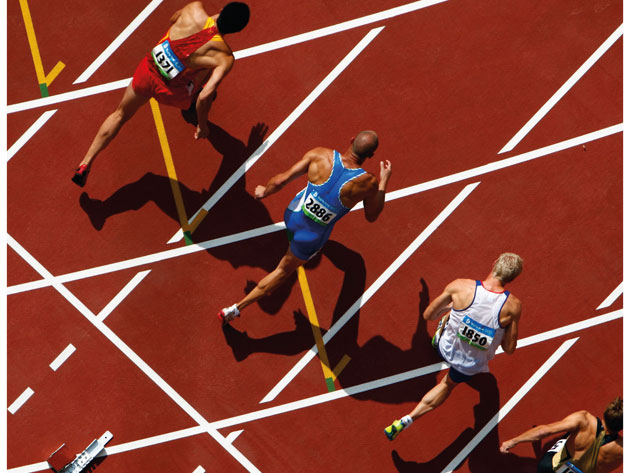Over the course of the last couple of weeks, I’ve been mulling over what it means to be successful. We all do at some point or another, or I think we do at least. It’s just that the term success is so abstract.
With the Olympics on, I’ve tried to reframe the concept in regards to how Olympians come by it. Generally speaking, these athletes have trained for most of their lives to earn the right to compete for their countries. When I say most of their lives, I don’t mean just on the weekends from the age of six until now. I mean everyday when we’re stirring in bed, when we’re at work, when we’re going about our day-to-day. It’s a more than a full-time job. It’s a lifestyle.
Moreover, I think it’s easy to assume that the pinnacle of their success is directly tied to whether or not they take home the gold. For some, maybe it is, but the Olympic creed states that, “The most important thing in the Olympic Games is not to win but to take part, just as the most important thing in life is not the triumph but the struggle. The essential thing is not to have conquered but to have fought well.”
And while that may seem a little too cliché for some of you, an Olympian’s fight isn’t limited to the water, court, mat, field or wherever that may be. Many countries, including the US, don’t subsidize training programs for athletes. That’s why American track star Lolo Jones juggled part-time jobs at Home Depot, as a personal trainer and waiting tables, so she could train and compete on her own schedule despite having a degree in economics from Louisiana State University. Karen Hultzer, an archer competing for South Africa, is a landscaper by trade. Chi Yip Cheung, who represents Hong Kong in judo, is a full-time fireman. Urige Buta, a marathon runner from Norway, is a janitor. Jamel Herring, the American boxer, is a sergeant in the US Marine Corps. Gwen Jorgensen, an American triathlon competitor, is an accountant at Ernst & Young, and Samyr Laine, the American triple-jumper, has a law degree from Georgetown and is bar certified in New York but put his career in law in on hold to train and compete in London.
Most of us don’t work a 40-hour week and go the gym regularly, no less train at a competitive level everyday. Why? We don’t aim to because we each yield different levels of satisfaction from it. Some people love training, and some hate it. That and the fact that we’re not all phenoms. I’m not one to quote Steve Jobs, but a buddy of mine just recently forwarded me the transcript from a commencement speech he made at Stanford in 2005. In it, he says:
“When I was 17, I read a quote that went something like, ‘If you live each day as if it was your last, someday you’ll most certainly be right.’ It made an impression on me, and since then, for the past 33 years, I have looked in the mirror every morning and asked myself ‘If today were the last day of my life, would I want to do what I am about to do today.’ And whenever the answer has been ‘No’ for too many days in a row, I know I need to change something. Remembering that I’ll be dead soon is the most important tool I’ve ever encountered to help me make the big choices in life. Because almost everything — all external expectations, all pride, all fear of embarrassment or failure – these things just fall away in the face of death, leaving only what is truly important. Remembering that you are going to die is the best way I know to avoid the trap of thinking you have something to lose. You are already naked. There is no reason not to follow your heart.”
For an Olympian to lead a life they’re content with, that might involve competing and then teaching or it might involve doing something completely unrelated. Ryan Lochte, the American swimmer, has said he wants to move out to Los Angeles to design clothes after he’s done. You might want to work the traditional eight to five doing what you are now or maybe you’d like to do something completely different and become an artist. If you do find yourself getting away from where you’d like to be. Well, we hope you have the strength to turn around and double back.
How do you define and pursue success in your everyday life?
